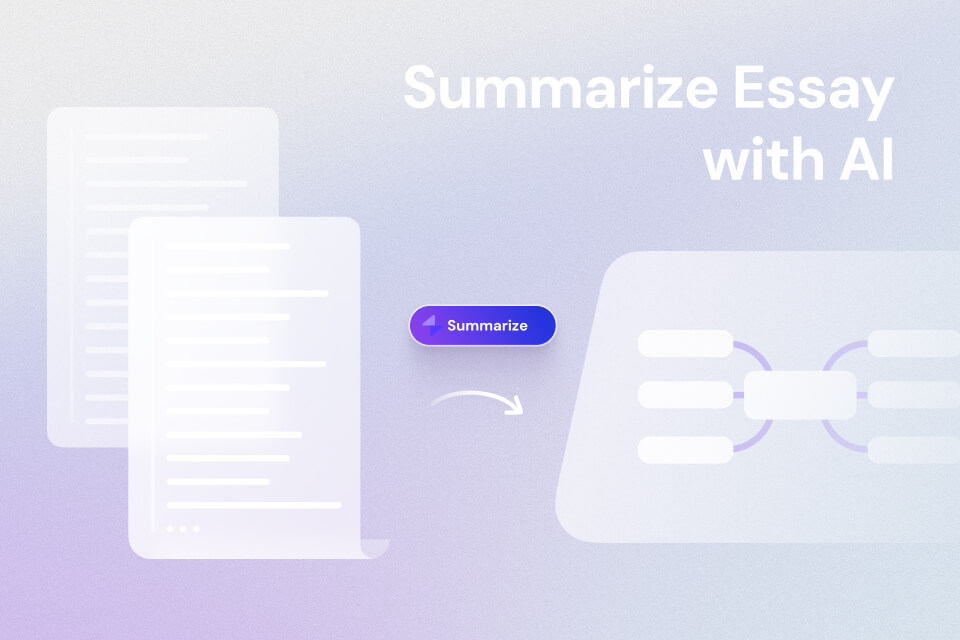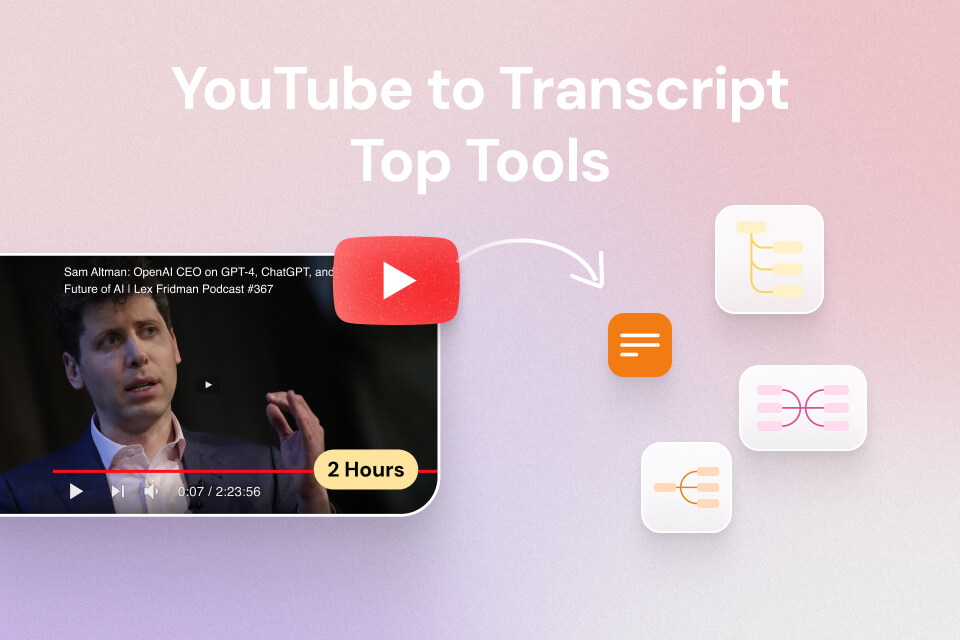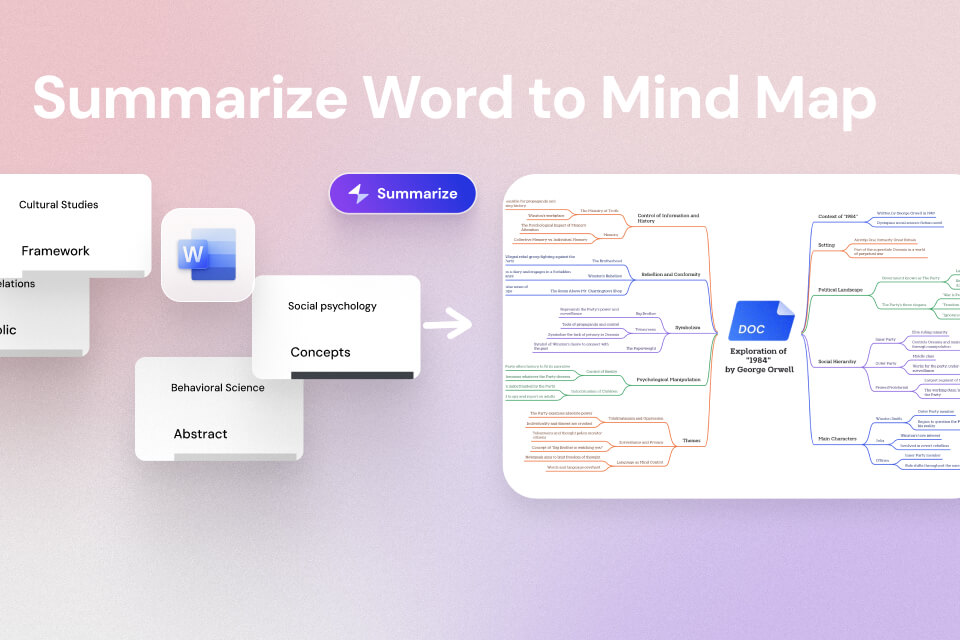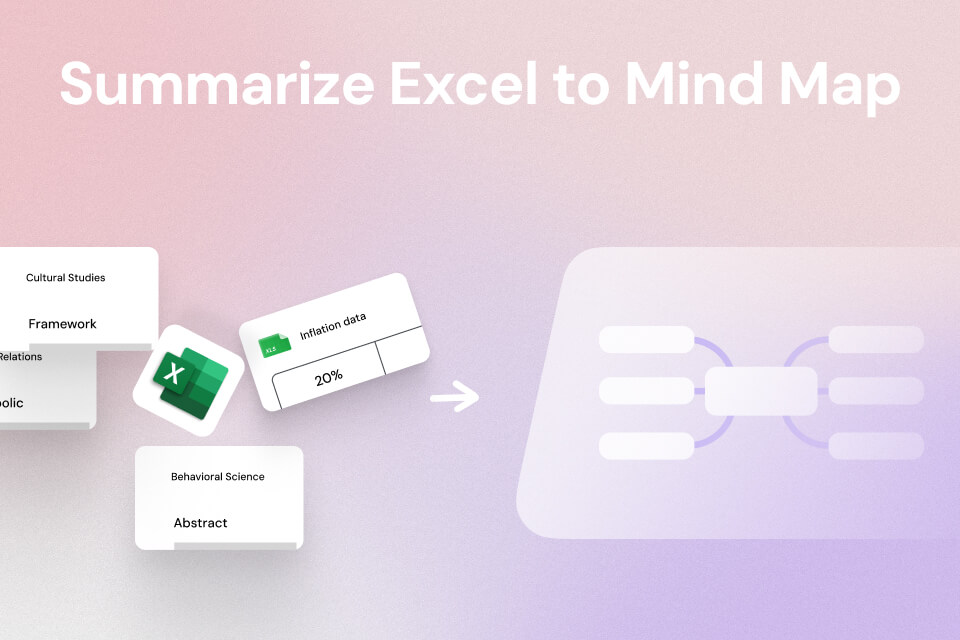In a world where there's so much information to take in, being able to read and understand text quickly is very important. Whether you're a student reading through a paper, a marketer looking at a report, or someone in any field needing to process content, having tools that help you work faster and more efficiently is key.
That’s where AI text summarizers come in. By using artificial intelligence to summarize text, individuals and organizations can save time, streamline workflows, and boost overall productivity. Whether you're using an AI tool to summarize text for research, business, or content writing, there are now many powerful options available.
This article lists the top 10 AI text summary tools that allow you to shorten text with AI automatically and for free. And it explores how AI technology is changing the way we read and understand written information.
Instantly turn your content into mind maps with AI
Get Started Now10 Best Tools to Summarize Text with AI
1. Mapify
Mapify is a free AI text summarizer that combines mind mapping with intelligent text summarization. It can quickly generate structured summaries while offering a visual layout of the summarized content. Users can paste or upload long texts, such as articles, reports, or academic content, and receive not only a concise summary but also a visual mind map that reflects the content's structure. This dual functionality enhances understanding, especially for visual learners.
Mapify supports multiple languages and allows you to export the results in a range of formats, making it ideal for students, educators, marketers, and business professionals alike. You can easily summarize text into mind maps with AI in a few seconds.
- Pros: AI-powered, supports multiple languages, and visual mind map output
- Cons: Full features require a premium subscription
- Price: Free plan available; Premium from $9.99/month
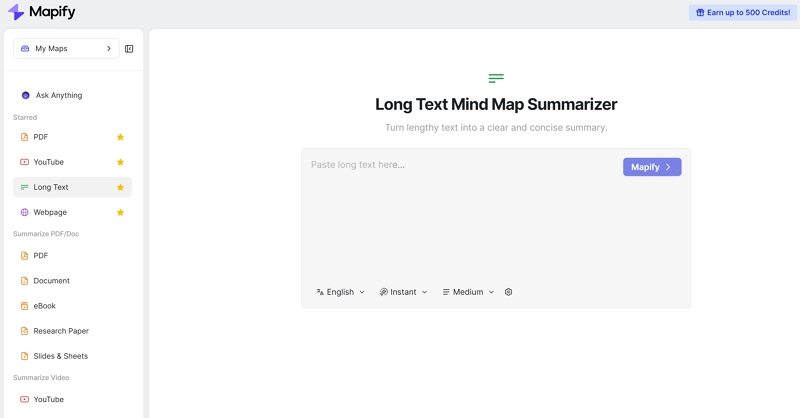
2. QuillBot
QuillBot is known for its AI-powered paraphrasing, but its summarization feature is very strong too. Users can choose between two summary styles: Key Sentences, which picks out the most important parts, and Paragraph mode, which gives a smoother summary. The interface is easy to use, making it great for students, writers, and professionals. It also works with Google Docs and Microsoft Word, and has a browser extension. Whether you're shortening a long blog or summarizing research, QuillBot gives clear and readable results.
- Pros: Simple interface, customizable summary length, integrations with Google Docs
- Cons: Limited functionality in the free plan
- Price: Free version; Premium from $14.95/month
3. SMMRY
SMMRY is a fast and free tool for quick text summaries. You just paste your text or enter a URL, and it provides a short version of the content almost instantly. SMMRY gives some control by allowing you to adjust the number of sentences in the summary. While it doesn't use advanced AI like transformer models, it's good for quickly getting the main points, especially for news articles and short posts.
- Pros: Extremely fast, no login required, easy to use
- Cons: Limited accuracy and no semantic analysis
- Price: Free
4. Resoomer
Resoomer is great for people who work with argumentative texts like essays, research papers, or analytical documents. Its AI model finds the main ideas and summarizes the content while keeping the structure and reasoning clear. You can paste a URL or upload a file, and it instantly condenses the material into something easier to understand. It supports multiple languages and is popular with students, researchers, and content reviewers who need summaries quickly.
- Pros: Academic-focused, supports multiple languages, intuitive design
- Cons: Not ideal for creative or narrative text
- Price: Free basic version; Premium from €4.90/month
5. Scholarcy
Scholarcy is perfect for academics and researchers. It pulls out key points from paper, like main findings, methods, and even citations. The “Flashcard” feature lets you quickly skim the most important ideas and saves references for later. Scholarcy also connects with academic tools like EndNote and Zotero. It's especially helpful for students in literature reviews or professionals who need to quickly scan many research papers.
- Pros: Extracts citations, integrates with academic tools, ideal for research
- Cons: May oversimplify technical concepts
- Price: Plans from $9.99/month
6. TLDR This
TLDR This is a web-based summarizer that excels at simplifying news articles, blog posts, and opinion pieces. It strips away ads, sidebars, and other distractions to deliver a clean, readable summary. The tool offers bullet-point or paragraph-style outputs and allows users to paste links directly for instant results. TLDR This also comes with a browser extension for easy access. Though it’s less suitable for academic papers or technical documents, it’s perfect for readers who want to stay informed without reading full articles.
- Pros: Ad-free experience, useful browser extension, quick summaries
- Cons: No support for file uploads or long-form documents
- Price: Free basic version; Premium from $4/month
7. SummarizeBot
SummarizeBot supports a wide array of file types, from PDFs and DOCs to images and audio recordings. It works through platforms like Slack, Facebook Messenger, and Telegram, making it highly accessible for teams and collaborative workflows. Its summarization capabilities are powered by AI and can handle technical documents, meeting notes, and even multimedia content. The tool is especially popular among remote teams who need to extract insights from various sources quickly.
- Pros: Multi-format input, integrates with team tools, good for business use
- Cons: The Interface could be more modern, pricing not transparent
- Price: API-based pricing; custom enterprise plans
8. Jasper AI
Jasper AI is a content creation platform that also excels at summarization. Built with GPT-based models, Jasper can take long-form content—such as blog posts, white papers, and emails—and generate well-structured summaries. Its interface supports multiple tones and styles, making it highly versatile. While it’s primarily targeted at marketers and copywriters, its summarization feature is robust enough to be used across industries.
- Pros: Supports SEO content, highly customizable output
- Cons: Expensive for non-marketing users
- Price: From $39/month
9. ChatGPT (OpenAI)
ChatGPT by OpenAI is one of the most flexible summarizers available. By entering a prompt like "summarize this text," users can receive human-like summaries of articles, essays, or transcripts. It supports both extractive and abstractive summarization styles, depending on how the prompt is written. Its conversational interface also allows users to clarify or fine-tune results in real time, which makes it stand out from other tools.
- Pros: Context-aware, multi-purpose, real-time refinements
- Cons: Requires skillful prompts, not optimized solely for summarization
- Price: Free version; ChatGPT Plus $20/month
10. Parrot AI
Parrot AI is made for remote work. It records, transcribes, and creates summaries from meetings, presenting them in an organized way. Instead of just a list of sentences, it groups summaries by topic, speaker, and time, which is very helpful for project managers and team leaders. It works best with audio and transcripts, but it's a great example of how AI can help summarize different types of content.
- Pros: Actionable meeting summaries, speaker labeling, secure cloud access
- Cons: Less useful for non-audio content
- Price: From $15/user/month
How AI Summarizes Text: The Technology Behind It
AI text summarizers are powered by machine learning (ML) and natural language processing (NLP). These models understand grammar, sentence structure, and context to determine which parts of a document are most important.
There are two main approaches:
- Extractive summarization: Selects exact sentences or phrases from the original content.
- Abstractive summarization: Generates new sentences that paraphrase the source material.
Tools like ChatGPT and Jasper use transformer models (like GPT-3 or GPT-4, even GPT-5) that are trained on massive datasets. These models learn context, tone, and semantics, resulting in summaries that read naturally and retain meaning. Continuous training and fine-tuning improve their accuracy over time.
Instantly turn your content into mind maps with AI
Get Started NowConclusion: Why You Should Use AI to Summarize Your Text
AI summarization is not only a trend but also a time-saving necessity. It's useful for academic research, business reports, marketing content, and even meeting notes. AI text summarizers offer a smart and efficient way to handle large amounts of information.
By using AI to summarize text, you can:
- Save hours of reading time
- Improve focus and decision-making
- Create content faster and more efficiently
Whether you're looking for a simple, free solution or a robust tool for business use, the AI summarizers listed above have something for everyone.
Ready to work smarter? Try Mapify today and transform your long-form content into clear, actionable summaries in just a few clicks.

